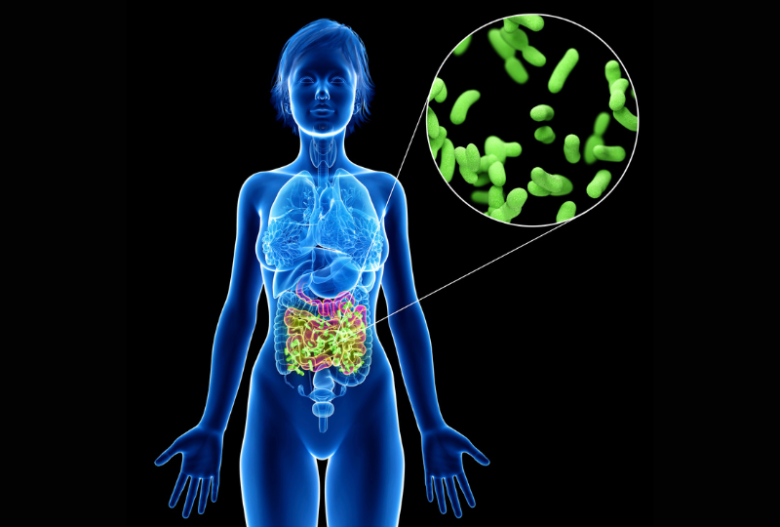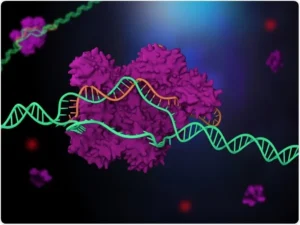In recent years, our trillions of gut microbes have quietly undergone a revolution. The gut microbiome is one of the most fascinating areas of biotechnology. As science uncovers the widespread impact of gut bacteria on digestion and mental health, biotech companies are rushing to provide innovative solutions for human well-being. This “gut revolution” is changing our understanding of health, from disease management to ecosystem optimization. With advances in DNA sequencing, laboratory-scale bacteria production, and the development of custom probiotics, our gut may be the future of healthcare. This article explores how science is unlocking the power of the microbiome and how it will impact medicine, nutrition, and health. Discover how this microbial renaissance is quietly changing people’s lives.
Understanding the Gut Microbiome
The billions of bacteria, viruses, fungi, and other microorganisms in the stomach make up the gut microbiome. While recently discovered microorganisms play a long-term role in the digestive process, their impact extends far beyond simply breaking down nutrients. They can also produce vitamins, regulate the immune system, and alter brain chemistry. A healthy microbiome promotes overall health, but dysbiosis (an imbalanced microbiome) has been linked to obesity, diabetes, irritable bowel syndrome (IBS), depression, and autoimmune diseases. This dynamic environment is now considered an active participant in human physiology.
How Biotechnology Is Deciphering the Microbiome
Biotechnology has advanced microbiome research through DNA sequencing, metagenomics, and machine learning. The presence and abundance of bacteria can now be identified through genetic analysis of stool samples. Individual microbiomes can be studied in unprecedented detail. Bioinformatics models link microbial communities to health outcomes. CRISPR is being used to modify genes in gut bacteria, enabling precision medicine. These advances are enabling researchers to tailor medicine to each patient’s microbiome.
Custom Prebiotics and Probiotics
Personalized probiotics and prebiotics are a promising application of microbiome science. Off-the-shelf supplements have been around for decades, but biotech technologies have made customization possible with genetic and microbial data. Companies now offer kits that consumers can send in samples of to receive customized formulas that can aid digestion, improve mood, or boost immunity. Unlike traditional treatments, noninvasive, lifestyle-friendly therapies can be integrated into daily habits. Wellness has entered a new era of personalized treatments, tailored to the body’s needs.
Microbiome and Mental Health
Biotechnology is also improving the brain-gut connection that connects the stomach to the brain. Gut microbes produce neurotransmitters such as serotonin, dopamine, and gamma-aminobutyric acid (GABA) that regulate mood and cognition. A disrupted microbiome can lead to stress, anxiety, and depression. Biotech companies are developing microbial probiotics to improve mental health through gut manipulation. Early studies show that gut health can reduce anxiety and sadness, making it a powerful holistic psychiatric tool.
Immune Defense and the Microbiome
The immune system and the microbiome are in constant communication. Gut bacteria train immune cells to recognize pathogens and reduce inflammation. A healthy microbiome can improve immune tolerance and reduce allergic reactions and autoimmune diseases. Biotech companies are exploiting this connection to develop vaccines and treatments for Crohn’s disease and prevent infections. Antibiotic resistance is making probiotic-based alternatives safer and more sustainable. These microbial “warriors” may strengthen the body’s defenses.
Microbiome and Chronic Disease Management
Chronic diseases are among the most expensive and complex health problems worldwide. Disruptions to the gut microbiome are associated with type 2 diabetes, obesity, cardiovascular disease, and metabolic syndrome. Biotech companies are developing microbial therapies to reset metabolic circuits and improve insulin sensitivity. Fecal microbiota transplants (FMTs), while still experimental, have shown promise in treating recurrent Clostridium difficile infections and are being studied for other diseases. Researchers hope to manage or even cure chronic diseases without drugs by altering the gut microbiome.
Ethical and Regulatory Considerations
Like any rapidly evolving field, the microbiome revolution raises ethical and regulatory concerns. Genomics and microbiology involve sensitive personal data. Clear standards are needed to protect privacy, informed consent, and equal access to innovative therapies. Despite their potential, many microbiome-based therapies are still in development and require rigorous safety and efficacy testing. The FDA is developing a framework for microbiome therapies, but regulation must keep pace with innovation. Public trust and scientific integrity are essential to fully exploit this emerging field.
The Future of Microbiome-Based Healthcare
The future of microbiome science integrated into mainstream medicine seems inevitable. Hospitals will soon be able to use microbiome data to personalize nutrition or predict disease. Pediatricians can promote microbial balance early in life to prevent asthma and allergies. Gut microbiome profiling is improving cancer treatments, and certain immunotherapies work better in people with specific microbial traits. The future of healthcare may focus on the balance of the internal ecosystem, not symptoms. Biotech companies, researchers, and clinicians are eager to advance gut health.
Conclusion
The gut revolution has changed the way we think about health, not just a trend. As biotechnology unlocks our microbiome, we enter a new era of personalized, preventive, and holistic care. The gut is now recognized as a critical component of our immune system, our mental health, and the treatment of chronic diseases. This paradigm shift is enabling sustainable, noninvasive treatments and a deeper understanding of health. Despite regulatory and research hurdles, momentum is strong. As we decipher the language of microbes, the future of medicine may be written by microbes. The transformation of the microbiome from obscurity to a central role in human health is just beginning.
FAQs
1. What is the gut microbiome? Why is it important?
Trillions of gut microbes live in the digestive tract. They are important for digestion, immunity, metabolism, and mental health. An imbalanced microbiome can lead to disease, while a balanced microbiome promotes health.
2. How is biotechnology contributing to microbiome research?
Biotechnology uses DNA sequencing and machine learning to analyze gut microbes. These findings help researchers discover patterns, tailor treatments, and develop microbiome-targeted therapies.
3. Can Probiotics Improve Health?
Probiotics can be used to improve digestion, immunity, and mental health by matching them to individual needs. Biotech companies are using genetic and microbiological testing to personalize probiotics for better results.
4. Gut-Brain Axis?
The gut-brain axis connects the gut to the central nervous system. Gut microbes produce neurotransmitters that influence mood and cognition, so a healthy gut is important for emotional health.
5. Are Microbiome Therapies Safe?
Many microbiome therapies show promise but are still in the early stages. While personalized probiotics are generally safe, fecal transplants must be done under the supervision of a physician and are still being studied.




